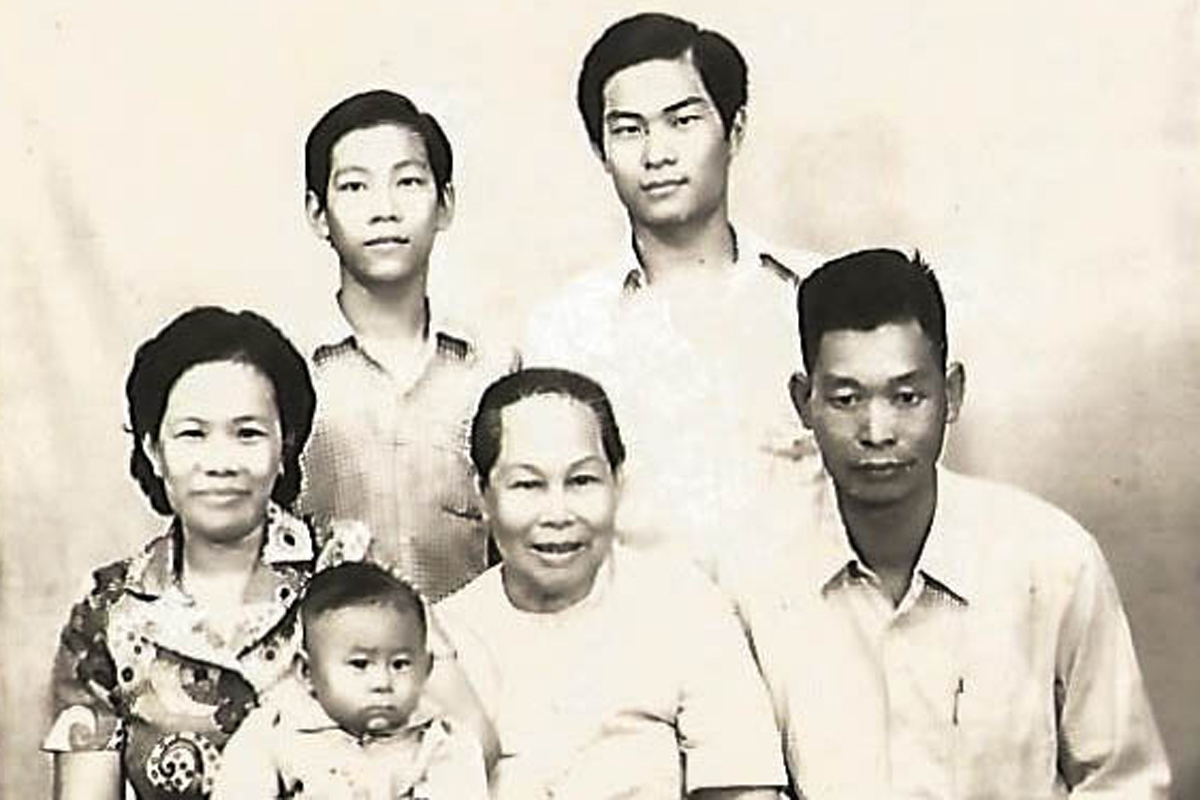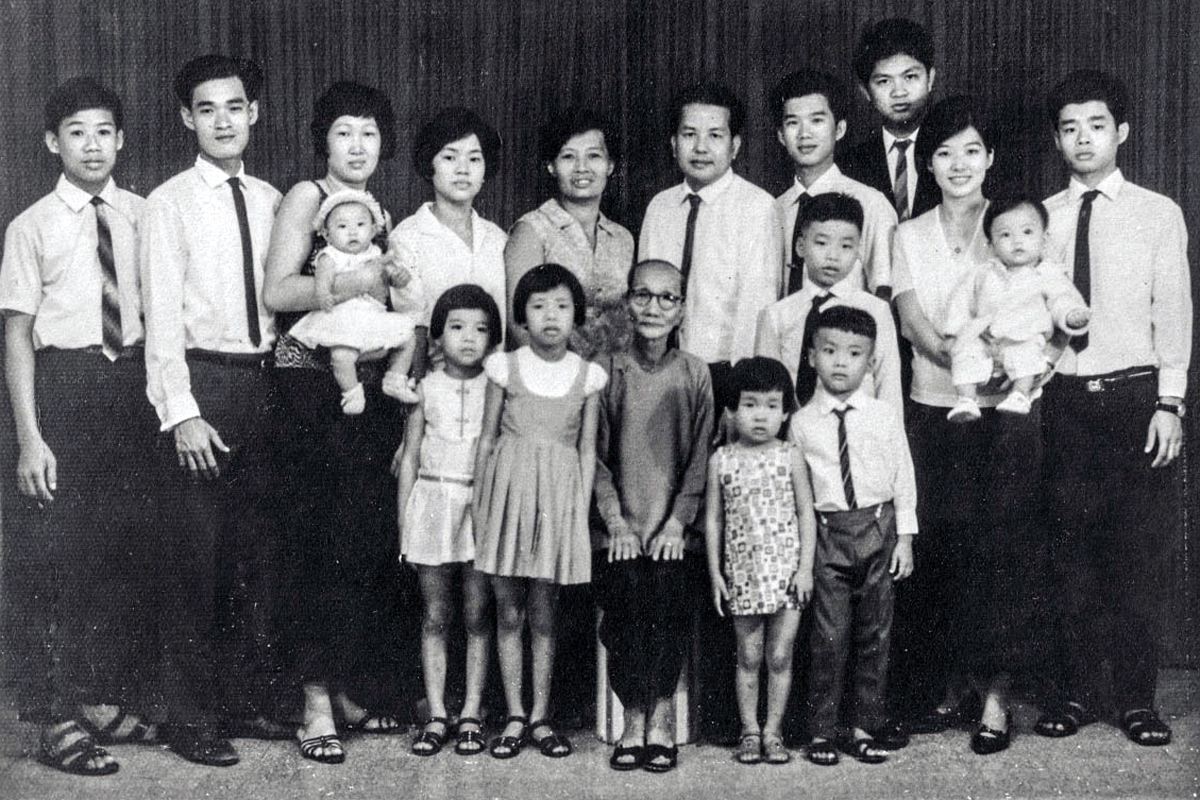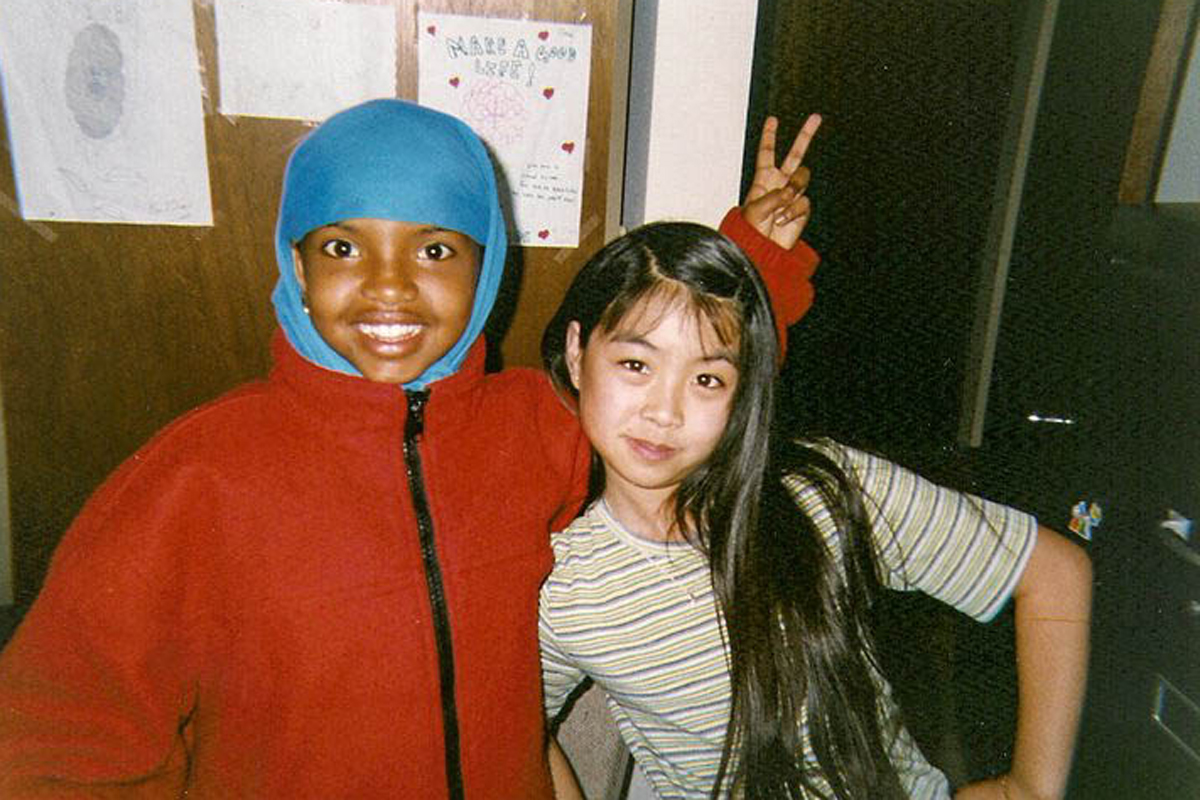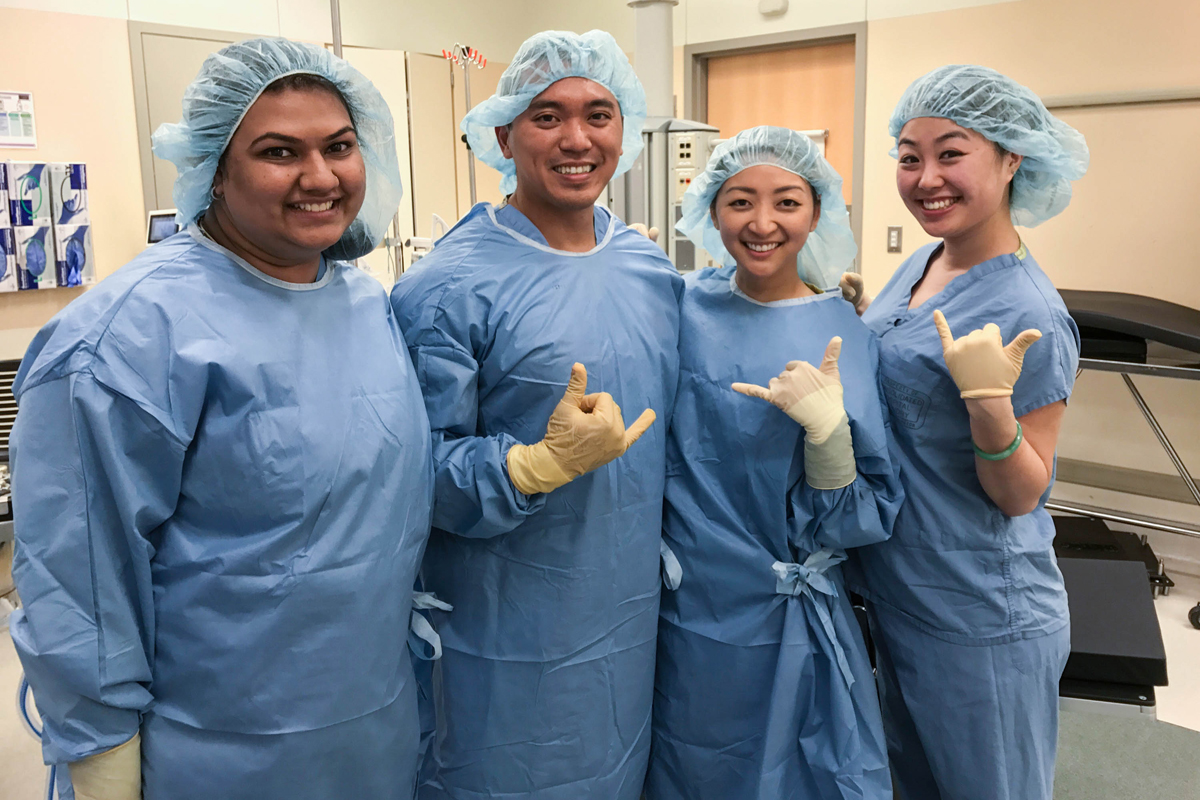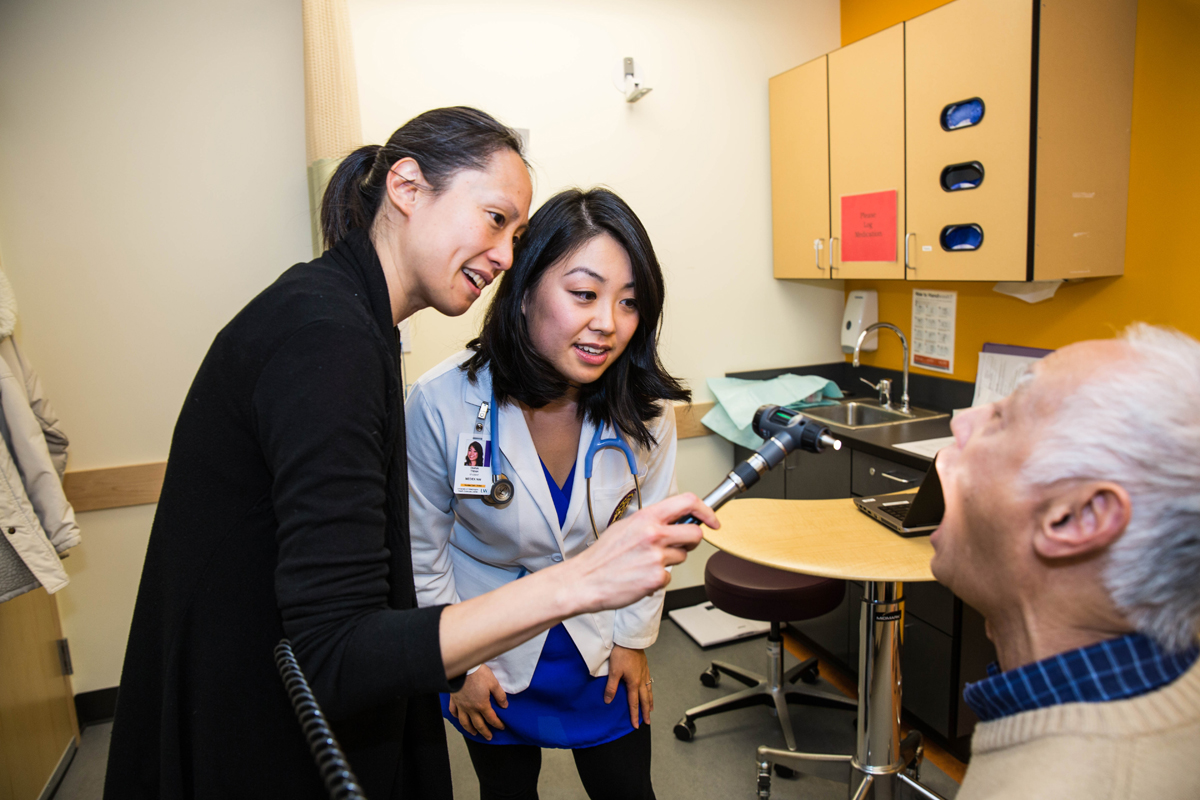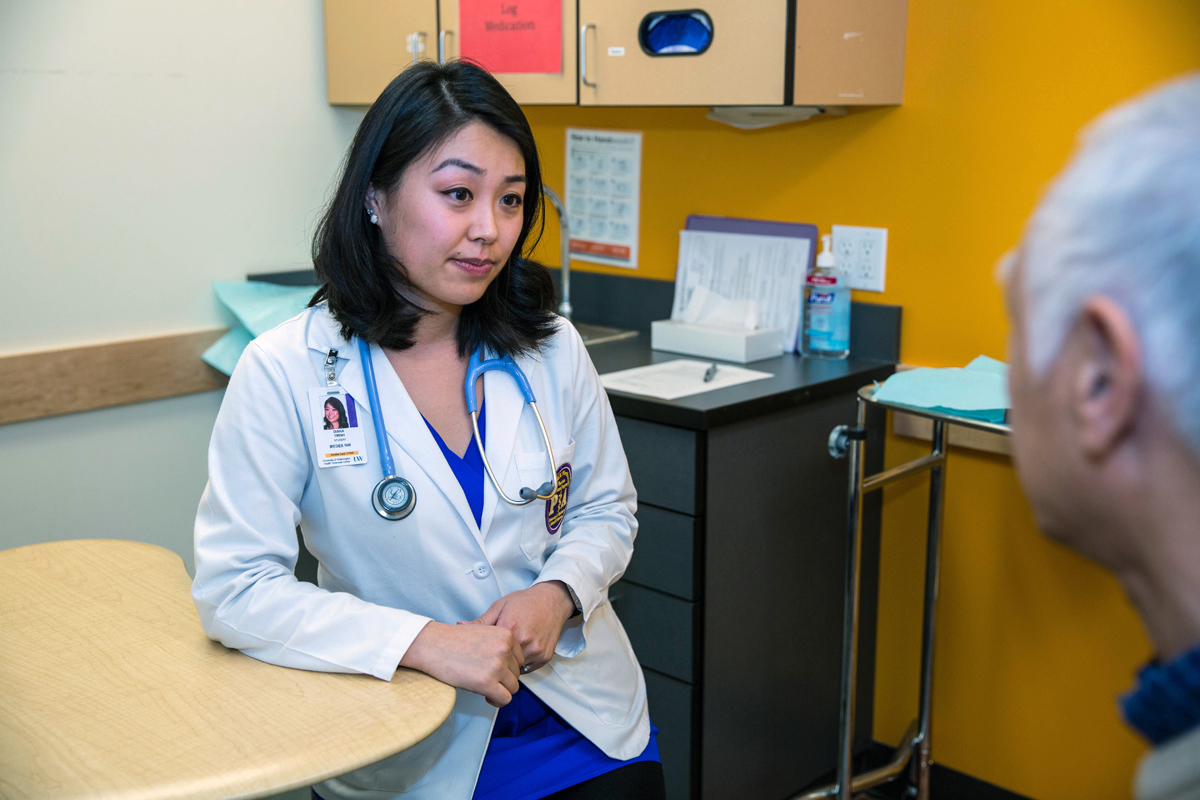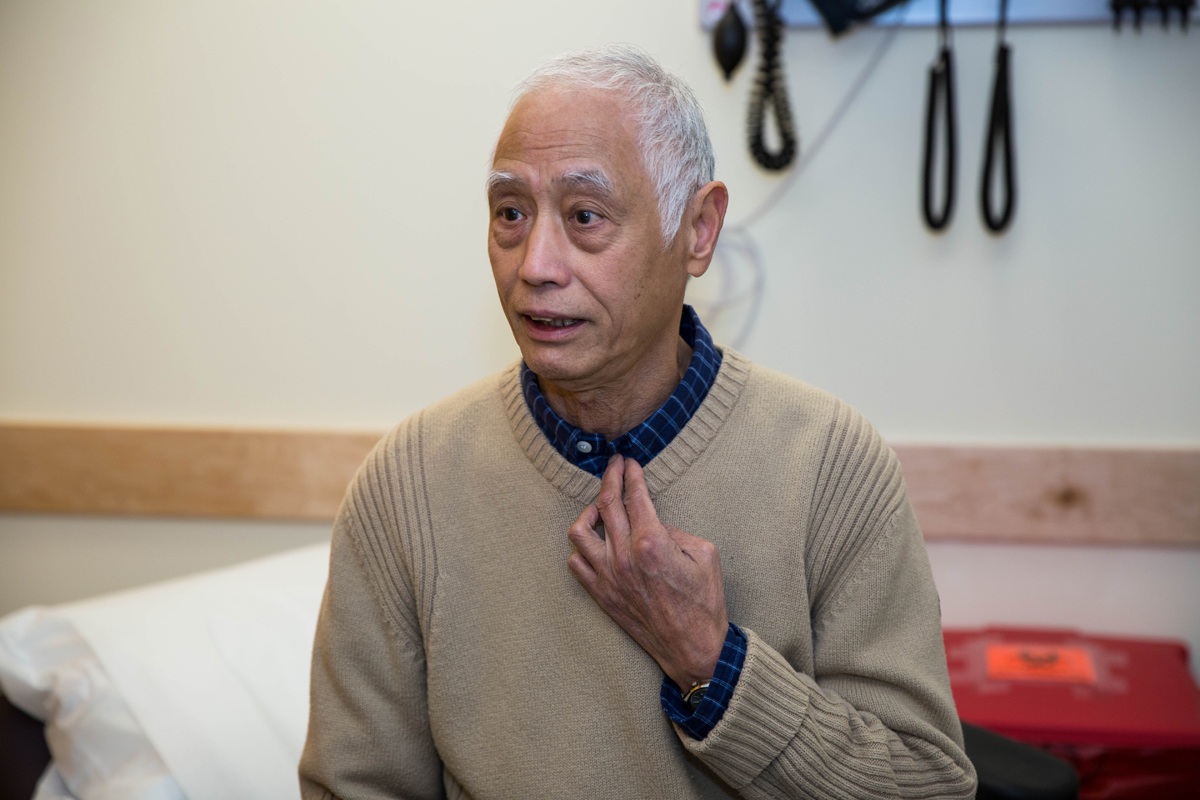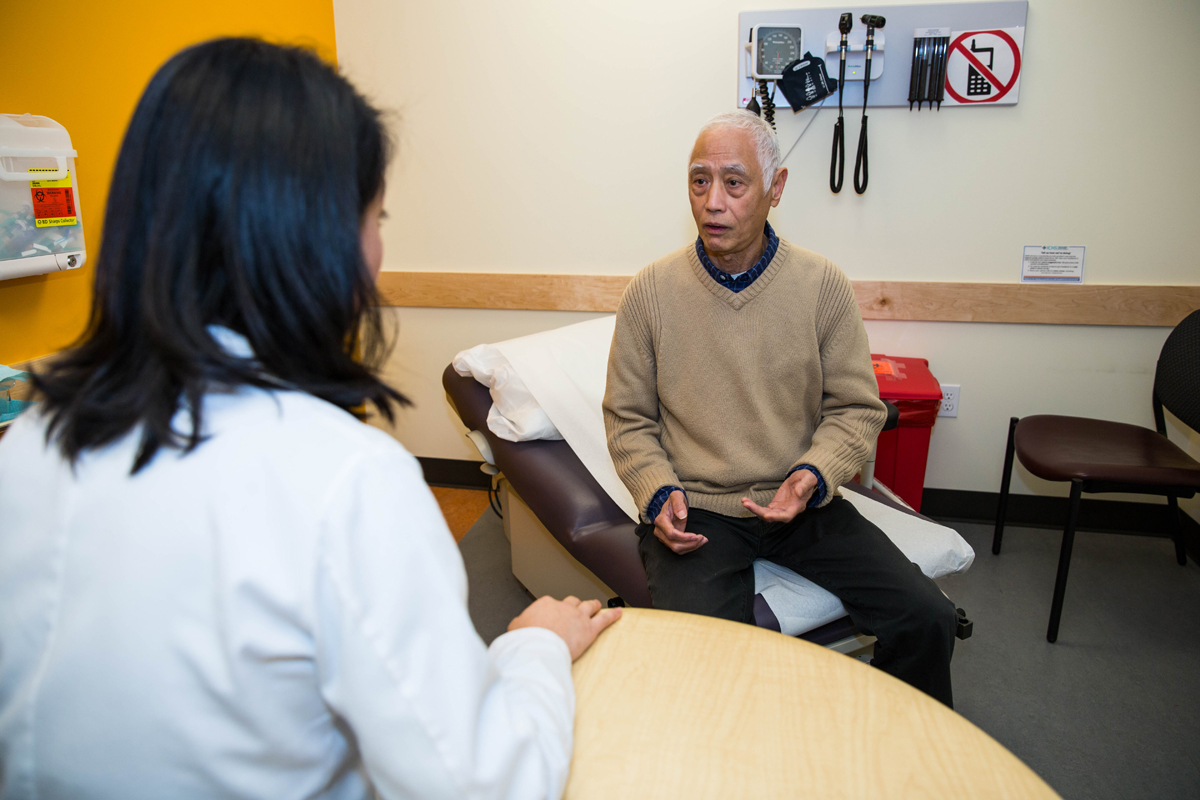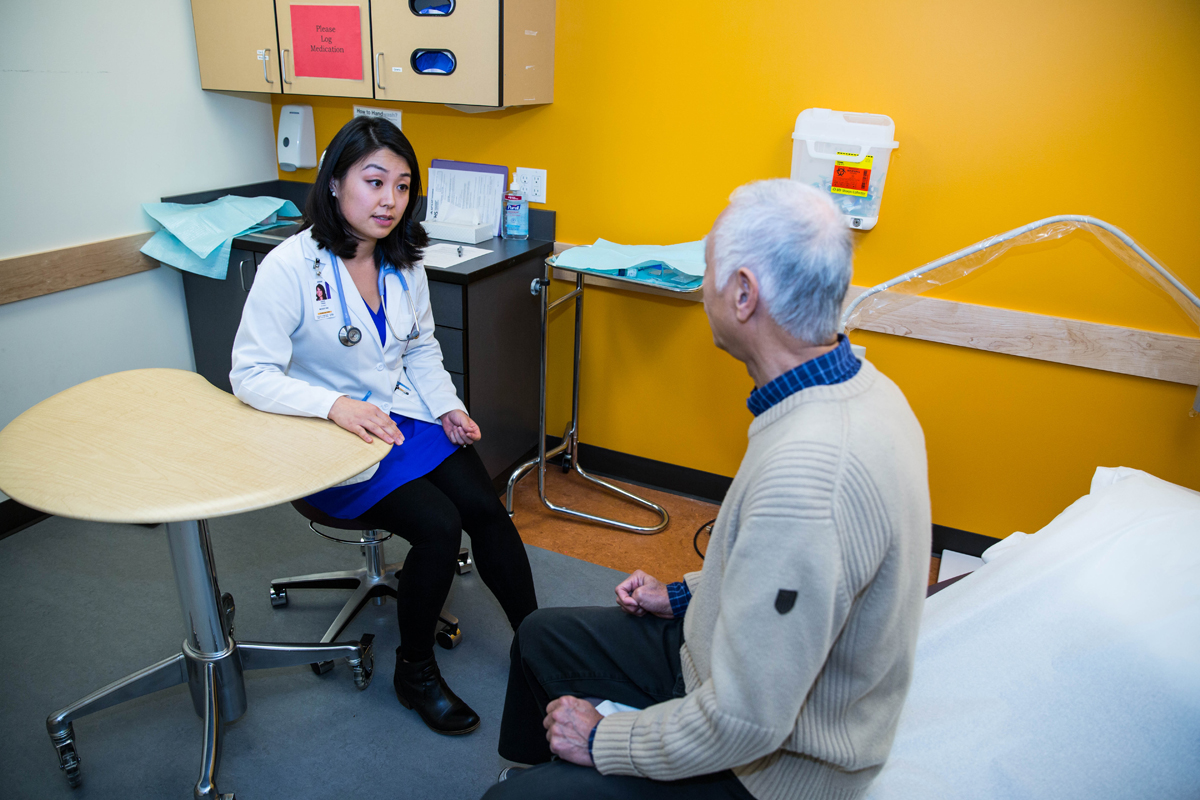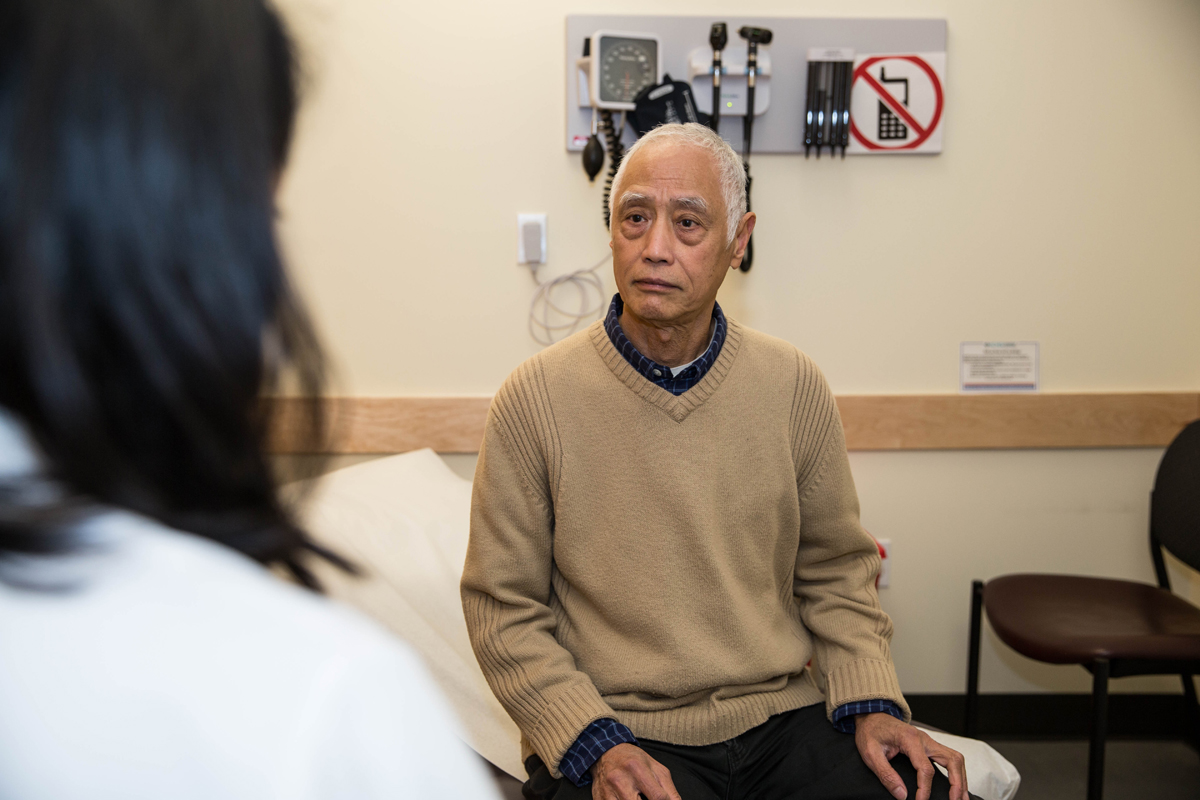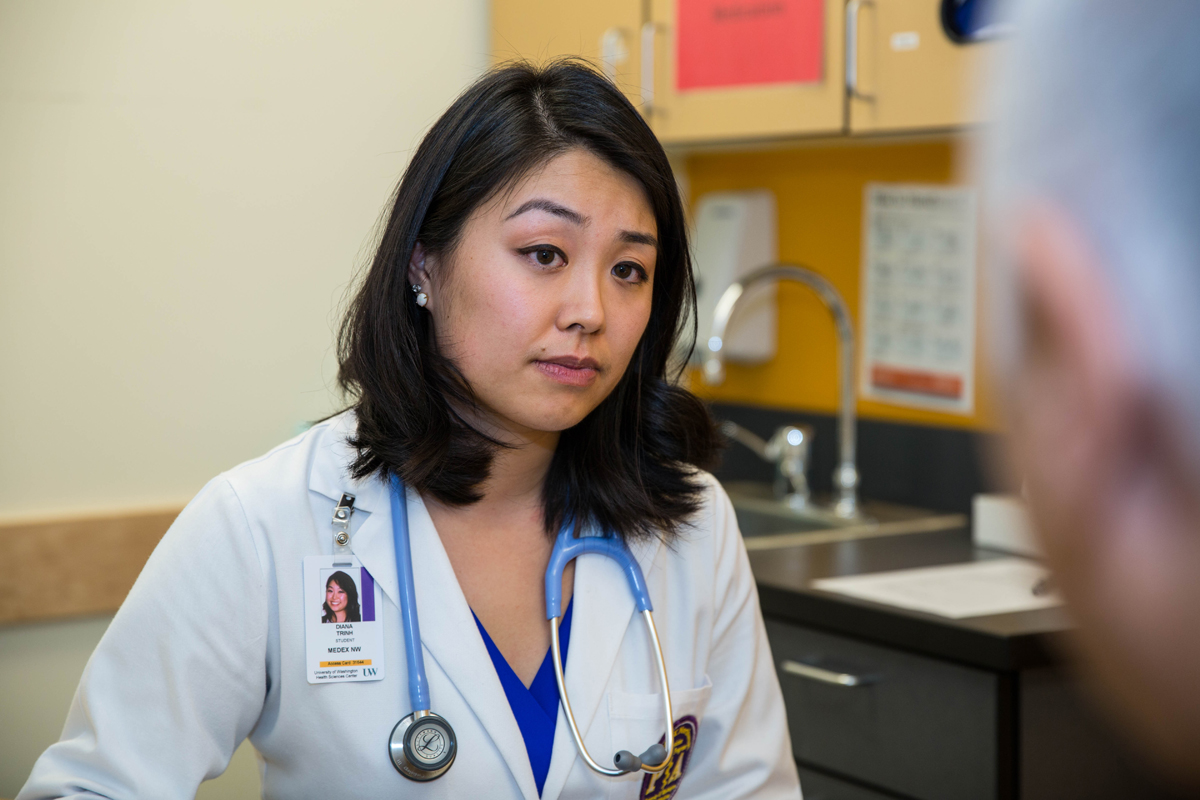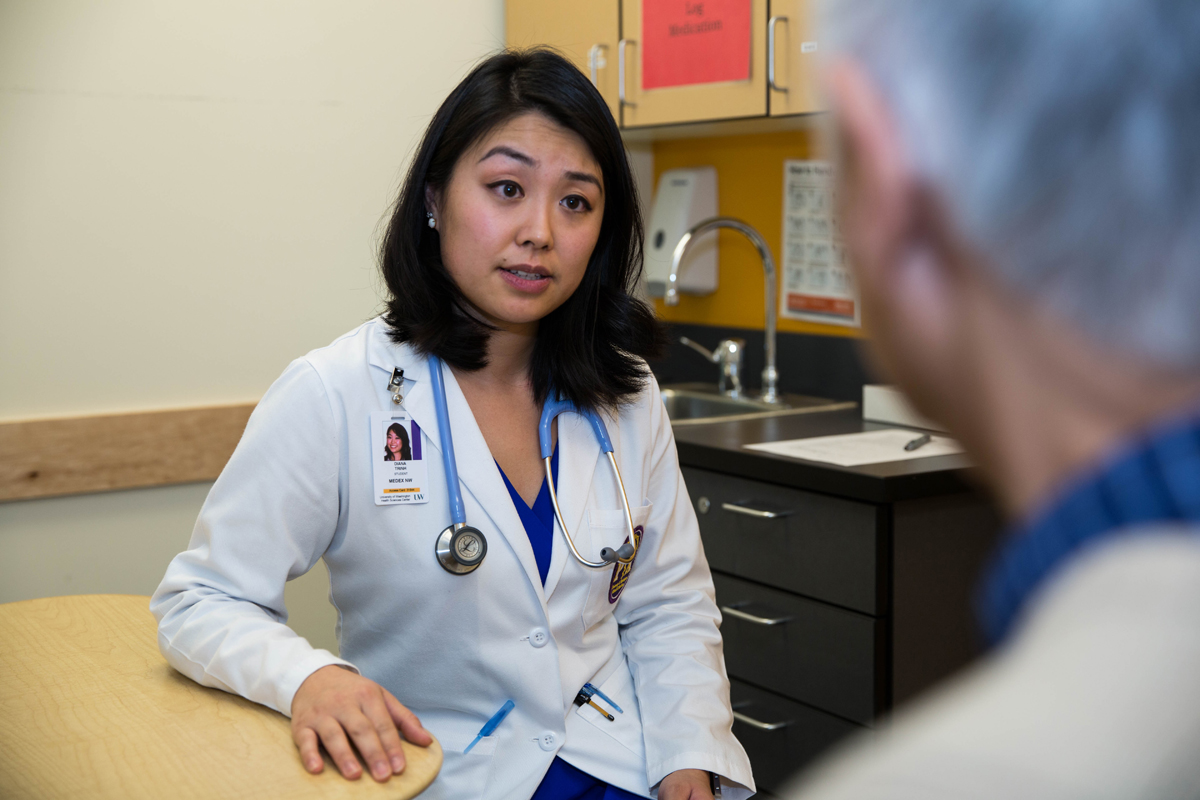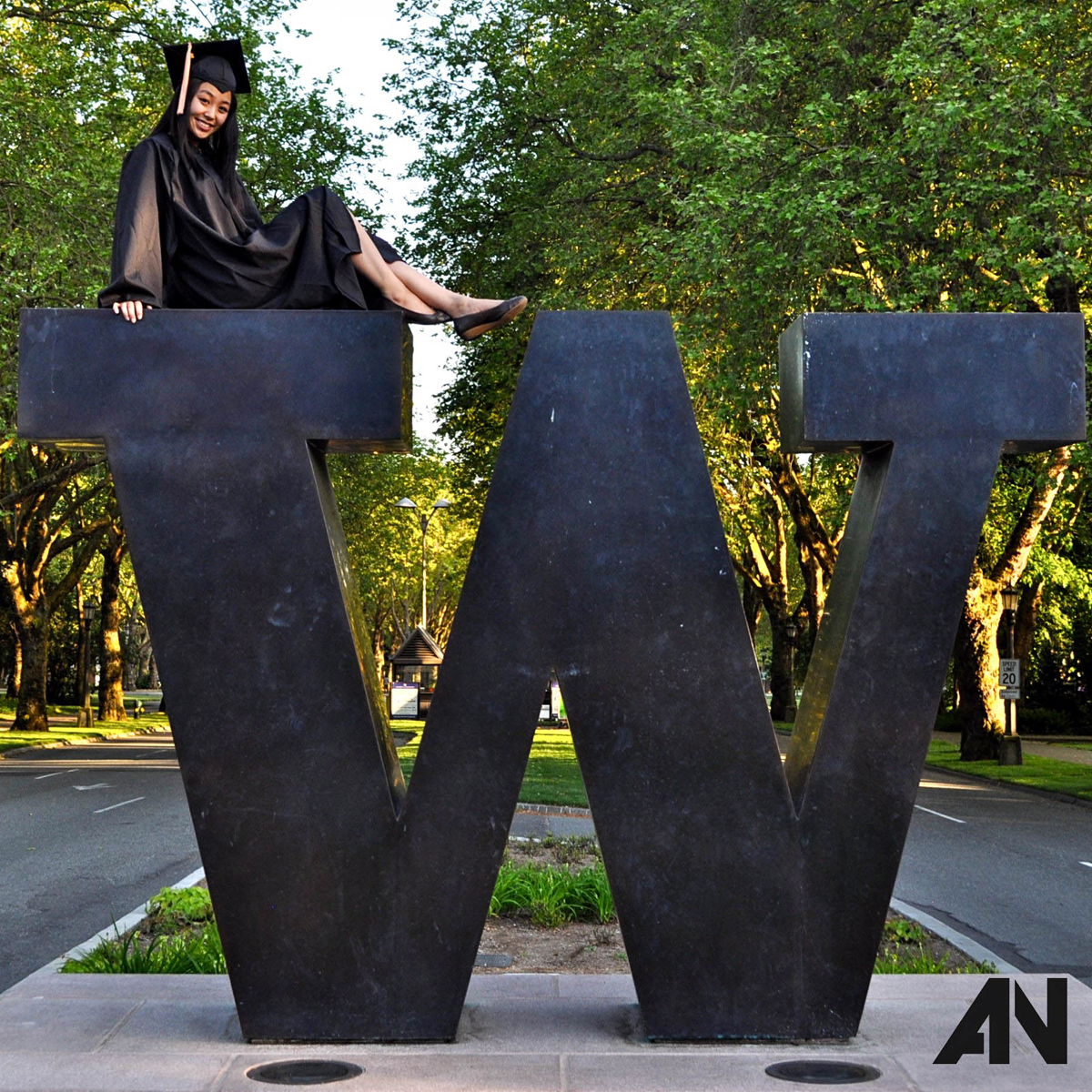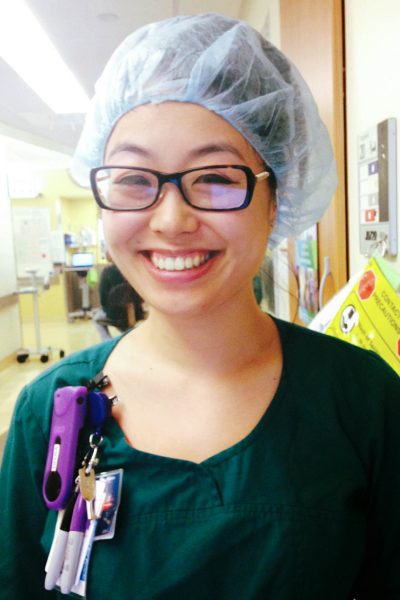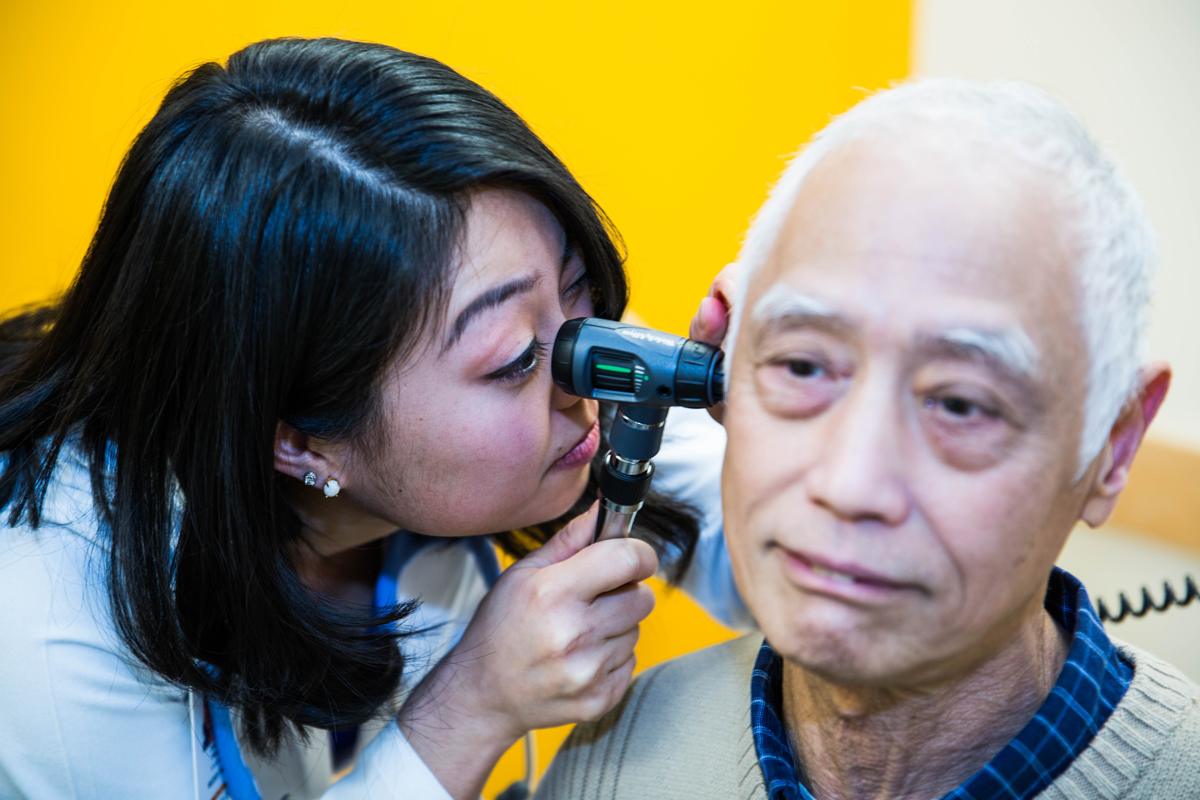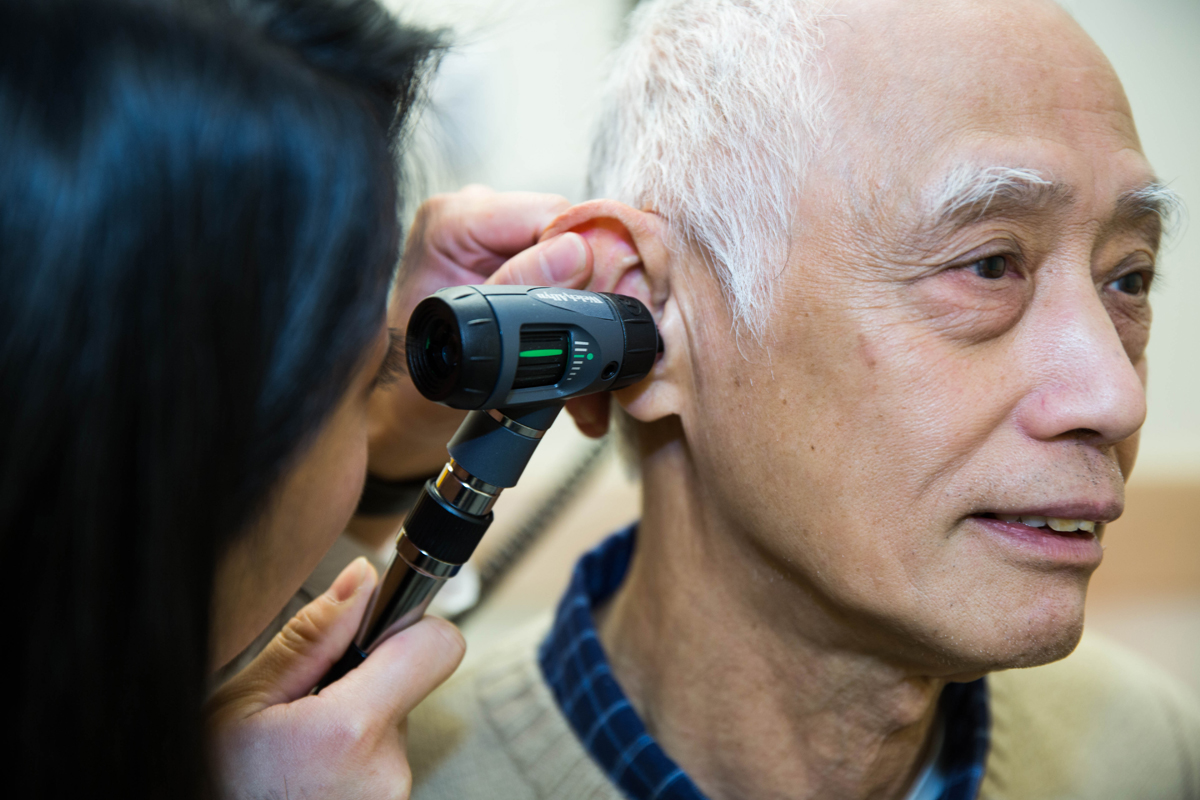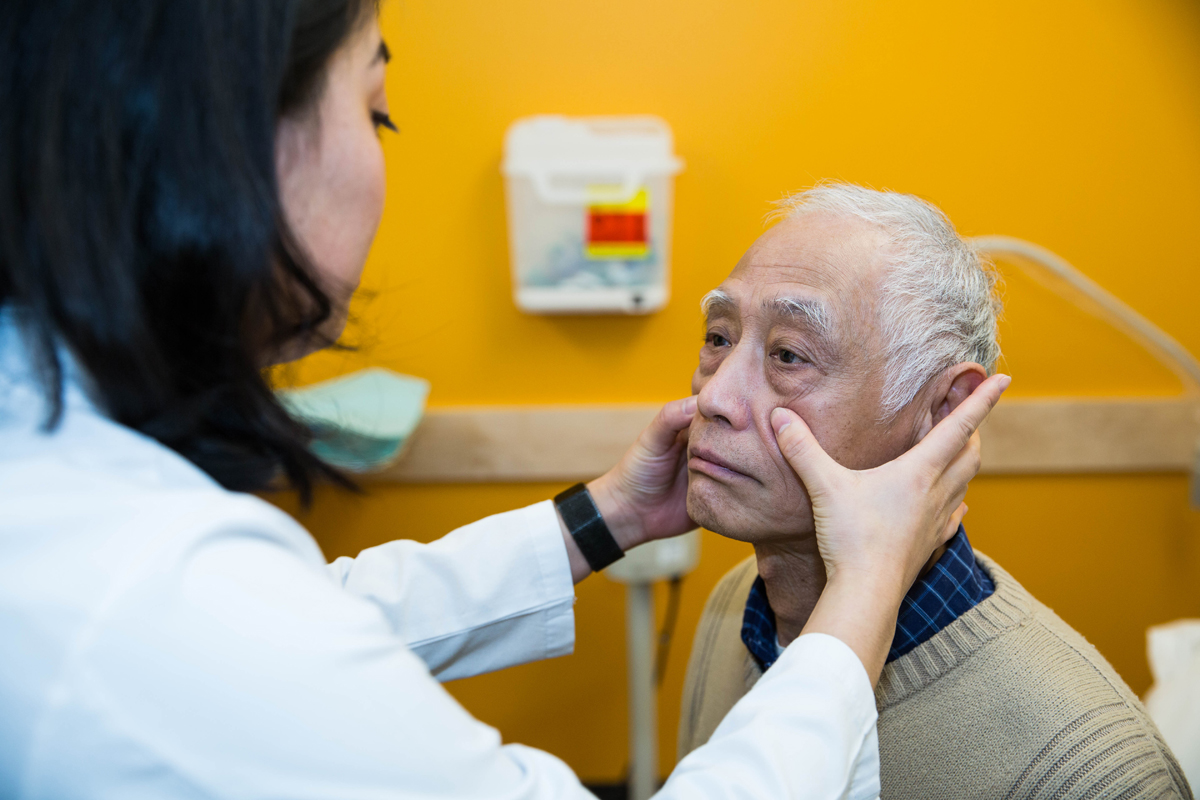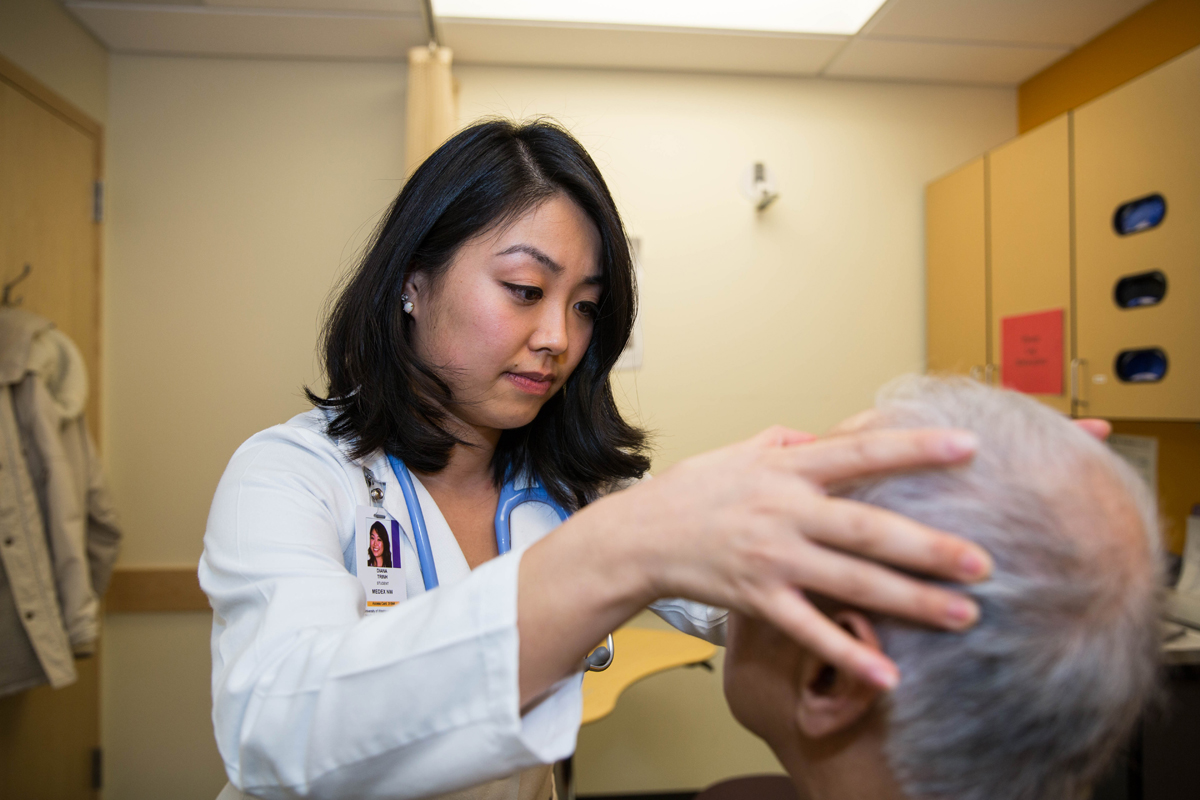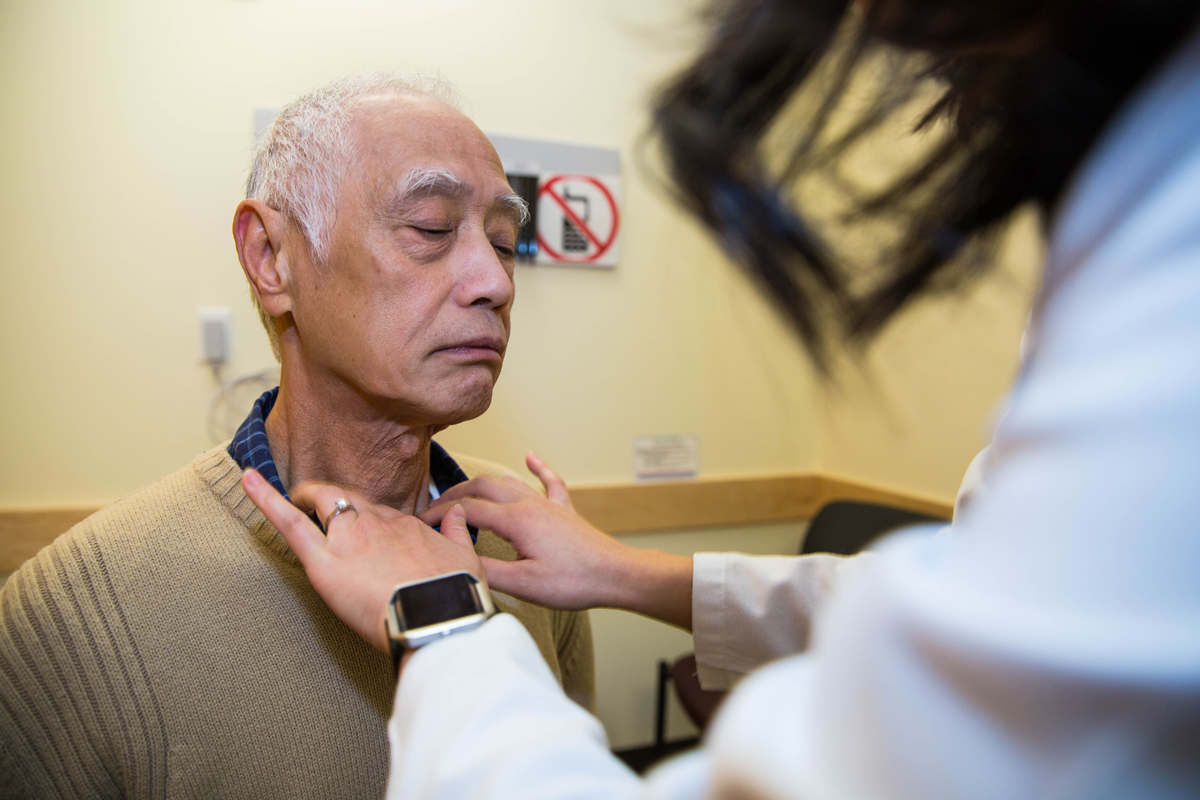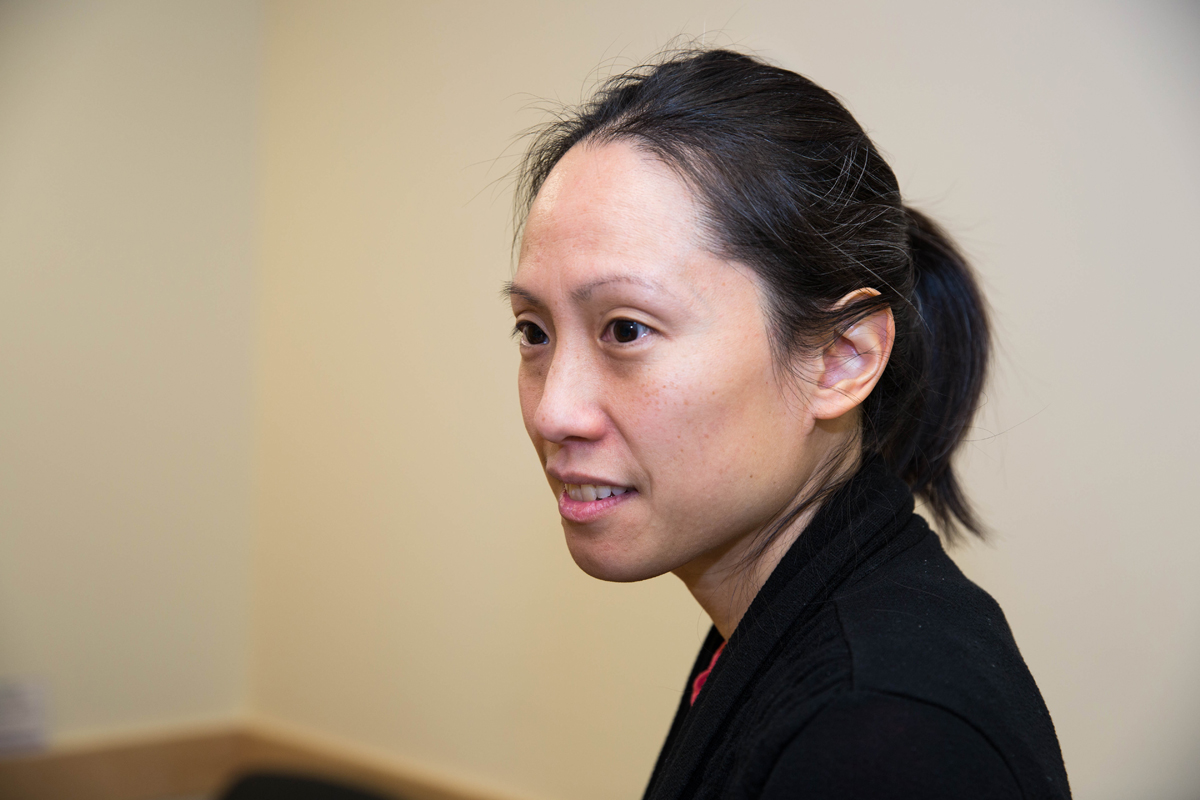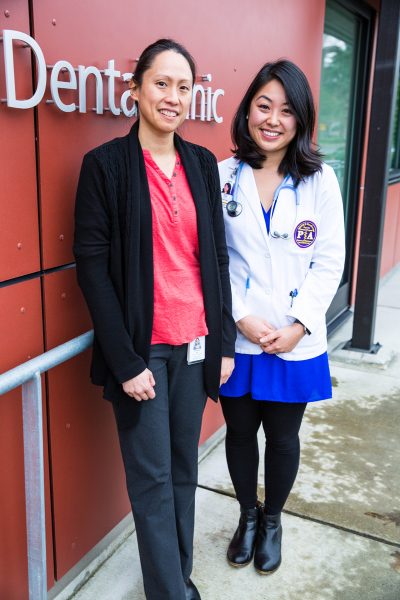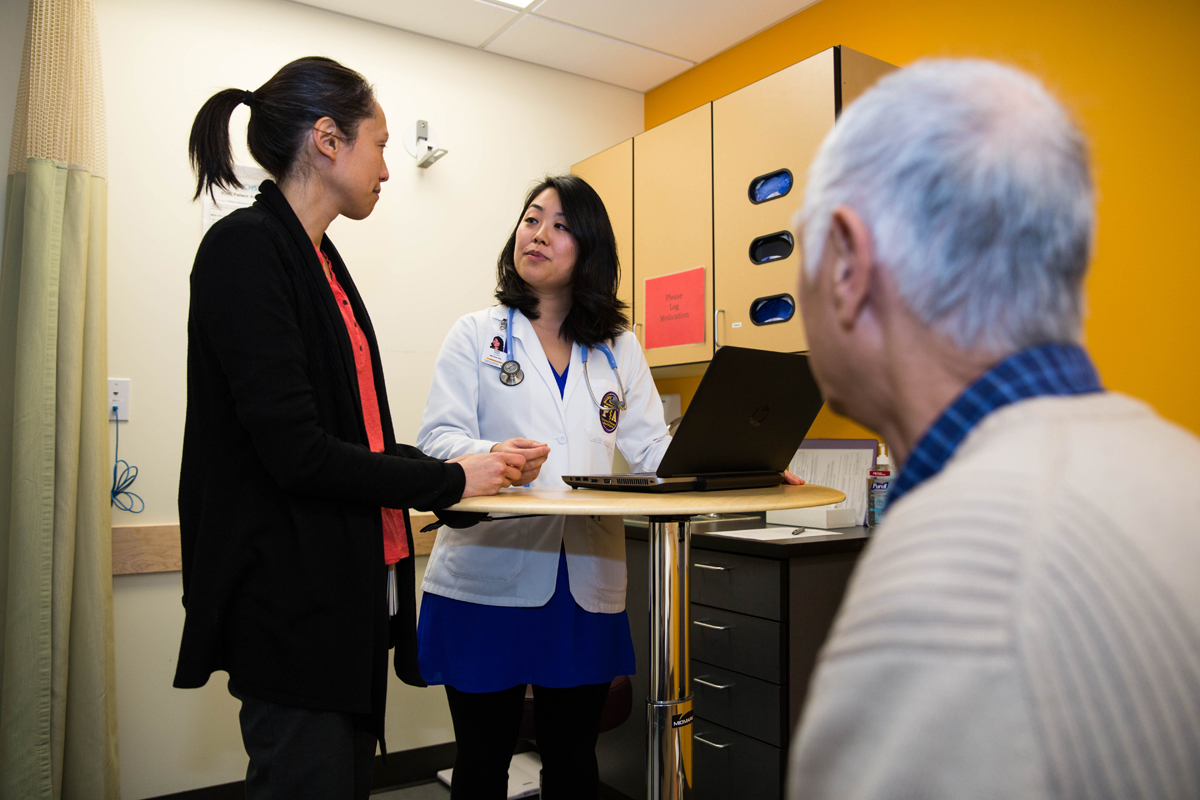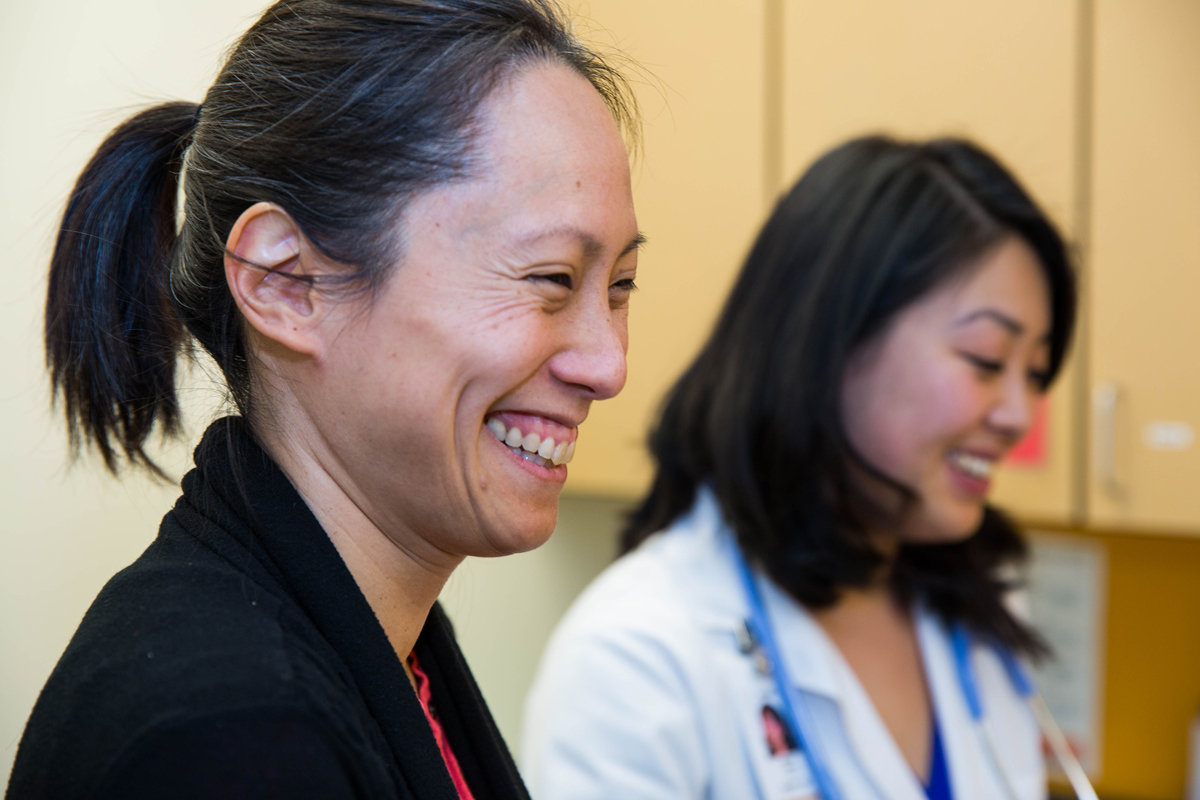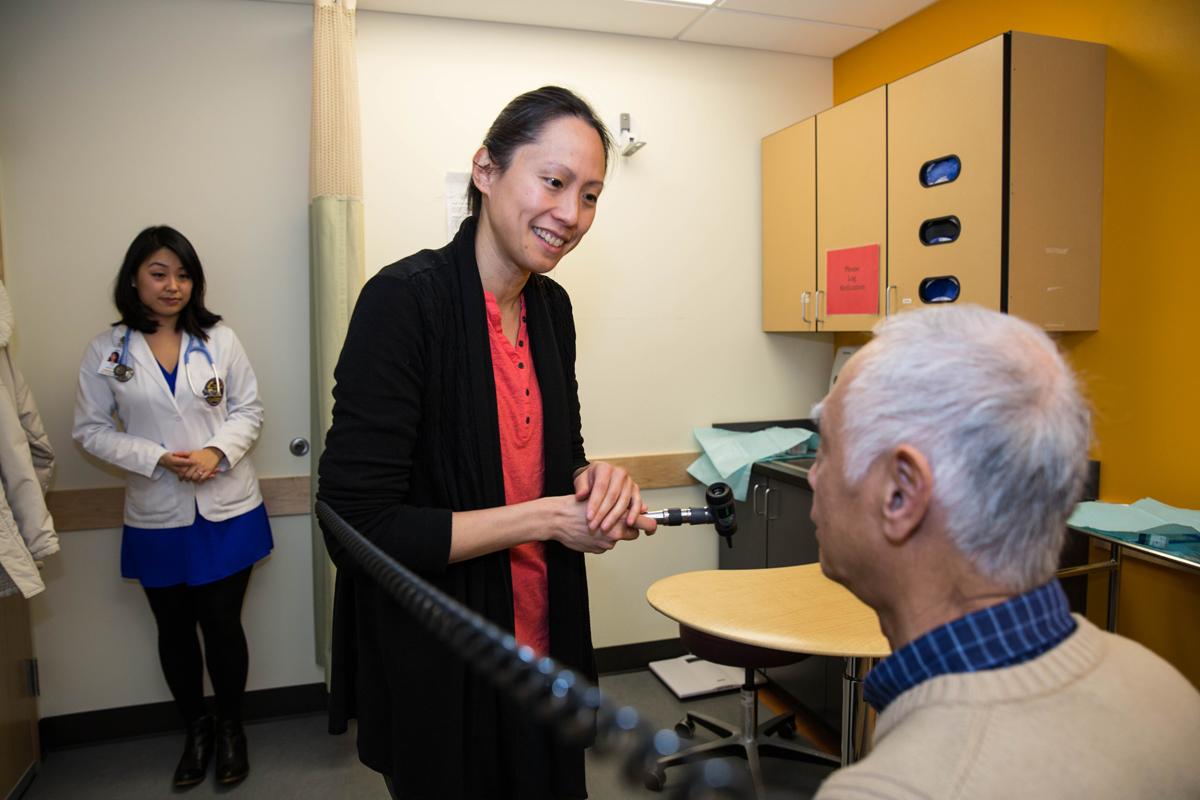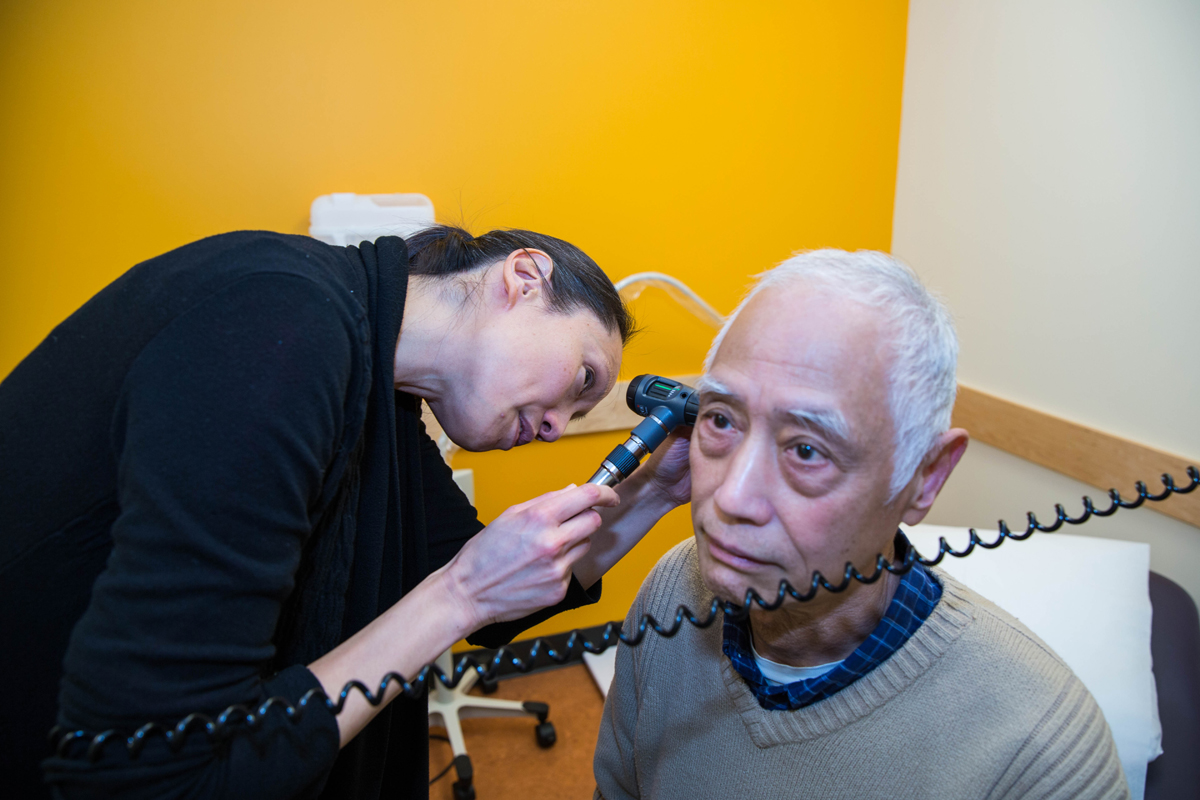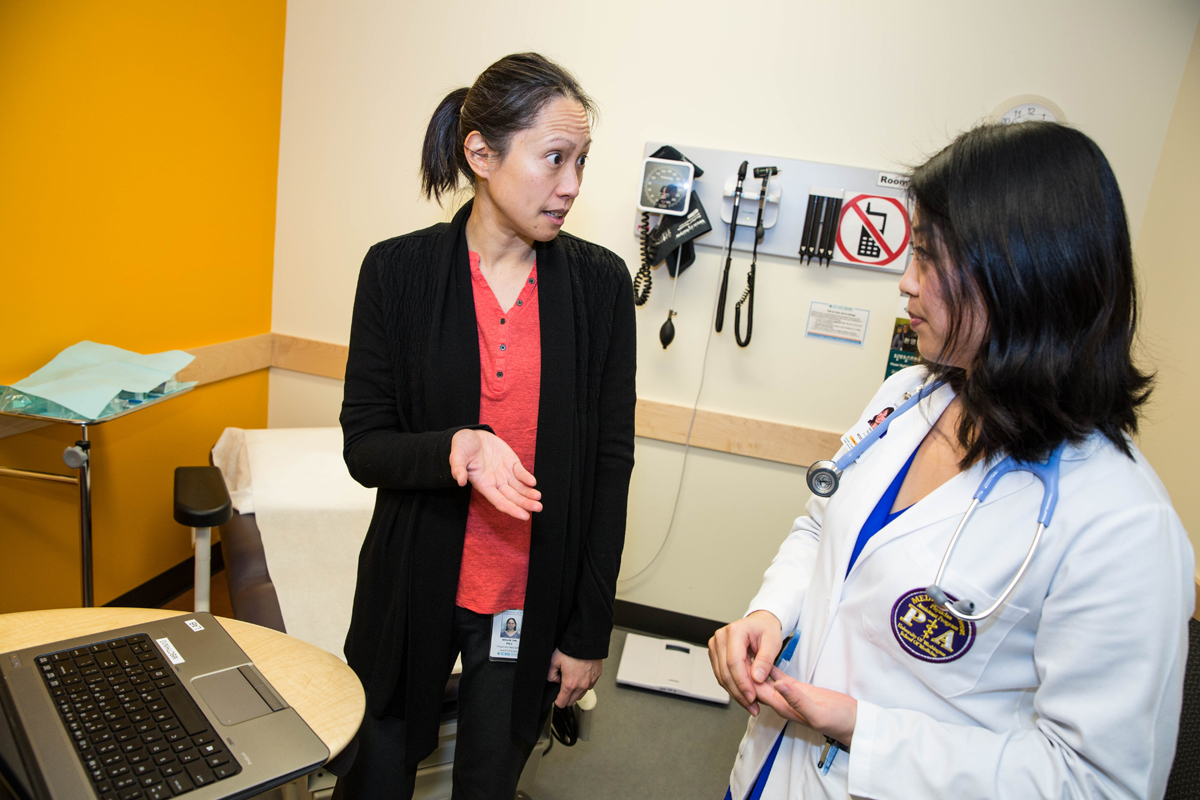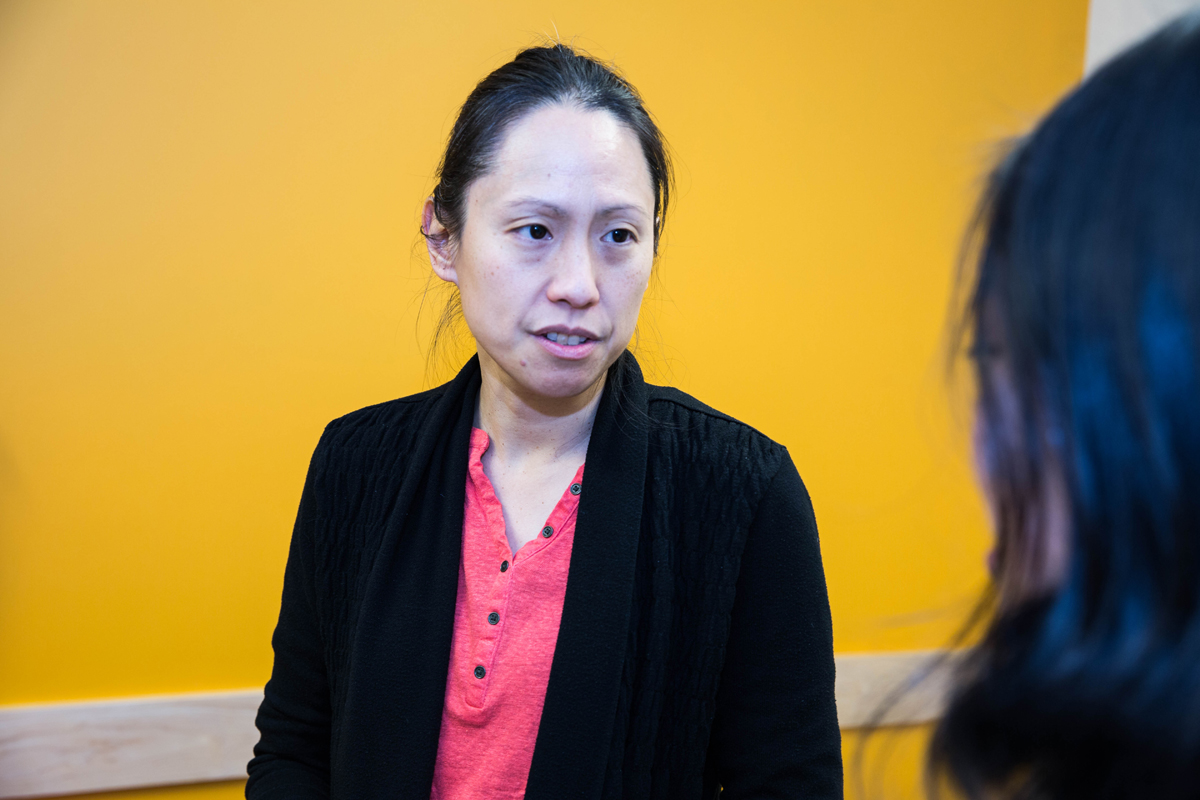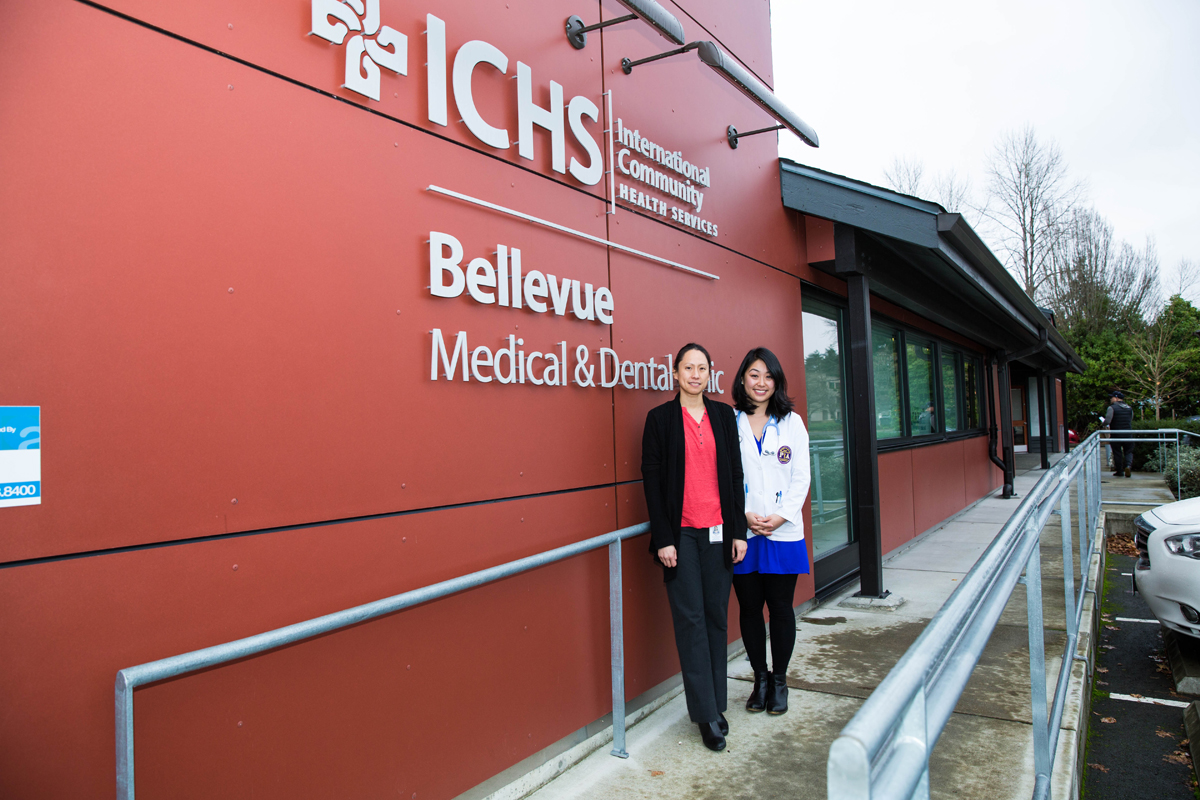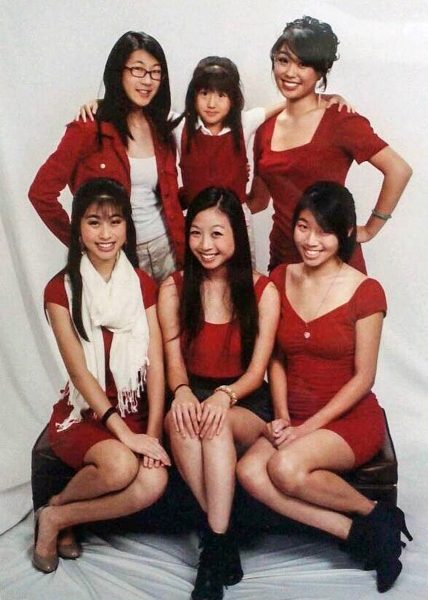Diana Trinh of Seattle MEDEX Class 50 is effusive about her family medicine preceptorship at the International Community Health Services Bellevue site.
“This is definitely amazing,” she says of the clinic that largely devotes its services to the immigrant underserved communities of Seattle’s Eastside.
Diana set up this particular 4-month gig because she had shadowed her principal preceptor, Winnie Lee, PA-C, prior to applying to MEDEX. “I chose someone that I truly admire in the way that she talks with patients. Winnie is a provider who is extremely compassionate, full of empathy and very thorough.”
Equally important, she sees the International Community Health Services as an organization that delivers culturally appropriate care. And given her own background as a first generation American of Asian immigrant parents, few know better of the healthcare needs of this community than Diana Trinh.
The name itself would seem to suggest Vietnamese ancestry. Not true.
“My family are refugees from Cambodia, but we’re ethnically Teo Chew-Chinese”.
Diana details a diaspora path that started with her grandparents settling in Cambodia during World War II following Japan’s invasion of China. Her father’s family immigrated to a rural part of the country, while her mother’s family settled in the city. Upon seizing power in 1975, the Khmer Rouge and their leader Pol Pot began a murderous regime that lasted until 1979. At least 1.7 million people died—nearly a quarter of Cambodia’s population.
“Luckily, my mom and dad survived,” Diana tells us. “Growing up, they told me many, many stories about their experiences. As I would be going to sleep, there would be your bedtime stories, probably not appropriate for young children. But for them it was a bit of therapy, and it really made us appreciate our opportunities here and realize our privileges at a really young age.”
Her father didn’t stay in the Khmer concentration camps for long.
“He ended up fleeing, escaping to Vietnam, stayed there for a while, and was able to learn Vietnamese. He returned to the refugee camps in Thailand in the hopes of reconnecting with his family but was not able to find them. And somehow, long story short, my father came to America and a Vietnamese translator translated our family name to Vietnamese.”
Both of Diana’s parents emigrated separately to the United States as refugees of the war in Southeast Asia. Diana’s mother arrived in Seattle with six of her twelve siblings accompanied by their parents. Her father landed in Long Beach, California before coming to Seattle, where Diana’s parents eventually met.
So, Diana Trinh’s ancestry is bit difficult to explain.
Some days, if she has the time or there’s someone willing to listen, Diana will share the larger backstory of her ethnic origins. “It often gets really complex to explain my last name, because then I would have to explain how I identify myself. I identify as Teo Chew (Chinese)- Khmer-Vietnamese-American, simply because my family has raised us through a fusion of these cultures,” she says.
Diana was raised in Kent, WA—an epicenter for newly arrived immigrants to the Seattle area.
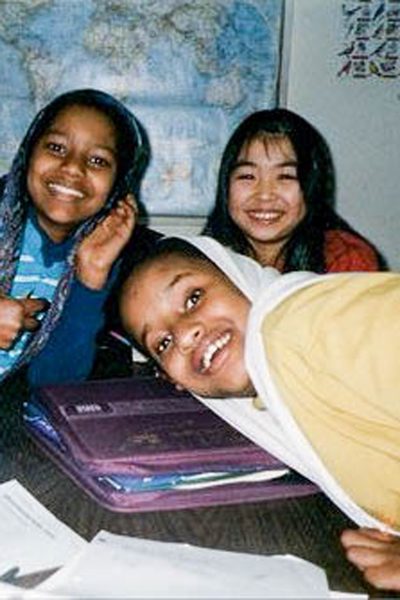
At age 10 or 11, Diana often had to seek homework help from the community center in her Kent, WA neighborhood as her parents did not know enough English to assist her.
“I grew up in low-income housing, and everybody in my neighborhood came from war-torn countries,” she explains. It was a real United Nations—Vietnamese immigrants, Cambodian, Korean, Somali, Ethiopians, Kyrgyzstan, Middle Eastern, Russian, Romanian and Ukrainian immigrants alongside Native Americans and African Americans.
‘I’ve always been surrounded by a lot of different ethnic diversity and a lot of diverse cultures growing up,” she says. “We all knew that we were all struggling in one way or form.”
With people crammed together living in 10-family townhouse units, the stress became manifest. “You could hear the domestic violence that goes on at night,” she adds. “People had PTSD and were unable to express what they’re feeling. Plus, there was the cultural taboo around speaking about mental health issues. So, it just shows up in life and we normalize it. I really didn’t know that this was abnormal behavior until I went to college, met other people, and realized how no one could relate to my experiences besides people who had come from a similar neighborhood background, which was usually rare.”
The oldest of six girls, Diana recalls that a lot of the families in her Kent complex had at least five siblings or more. “There were people who came from a family of ten children, all crammed into three or four-bedroom homes. It gets really cozy.”
Diana’s earliest interest in healthcare was born of her father’s use of Chinese medicinal herbs.
“Growing up, when I got sick, my dad would put together all these potions and herbs. They all looked the same to me, some kind of dried something. But I’d drink it and feel better. There was always an herb for something. It was almost like magic, you know. You put together all this stuff, and then you’re better.”
She recounts that her paternal grandfather and father had an apothecary in Cambodia, and they treated many patients. The war in Southeast Asia took all that away. “But, you know, knowledge is everlasting,” Diana adds.
And then her maternal grandfather kept a giant wall of Chinese herbs that he kept in glass jars. “They looked like specimens,” she says. “There were dried toads and some of them included horns of something or other. But there was that aspect of cultural medicine that I experienced really young.”
And then growing up, Diana served as translator for her parents during their medical appointments. “Because my parents speak an uncommon dialect of Teo Chew Chinese other than the standard Cantonese or Mandarin, I was often times a translator when we went to the doctor’s office. And not just for my parents, but for my siblings. I would follow along and translate for my mom until she was able to understand English a lot better and go on her own. Oh, yeah, so there was a lot of exposure to medicine when I was young.”
One mantra that Diana’s parents always drove home is that health is wealth, and health is everything.
“Because without your health, you can never reach your goals or achieve your potential. You won’t be able to enjoy your successes as much if you have lost your health. So, health was always a priority. You have some ailment, then there’s a soup for it, there’s a tea for it. And even when I was going through school and struggling and trying to get good grades, my mom would stress that grades were not as important as me getting my sleep, eating properly or getting my exercise. That was always a priority even if I didn’t bring home straight A’s.”
Diana understands that not everybody was blessed with good health.
“So, you take it as a privilege and try to make the best out of it, to become a good human,” she says.
It was natural for Diana to gravitate towards healthcare because she’d been around it all throughout her life. “And when I finally got to college and studied Public Health for my undergraduate degree, it gave me a social justice lens to be able to look at healthcare. Being able to describe and understand what I went through in my childhood—how to describe the disparities that went on—I enjoyed that. I didn’t understand my feeling of being disadvantaged until I started learning about the socially constructed aspects of my family, and what that even meant.”
It was in the junior year of her undergraduate Public Health program at the University of Washington that the notion of PA education first came up.
“I always thought I’d do something in medicine, whether it be a nurse or a doctor or a PA. I didn’t know exactly what until my junior year when a teacher brought it up. ‘You know, maybe you should look into becoming a physician assistant’. I really didn’t know what that was, did some research and it really sparked my interest.”
Diana started shadowing different physician assistant providers until she felt it was the right fit for her.
As part of her undergraduate service learning project, Diana did a two-month rotation at the Bailey-Boushay House, an HIV hospice in Seattle.
“I loved it so much that I volunteered there for the next two years,” she tells us. “I got to be a companion there for people in the most vulnerable times of their lives. And then I got my CNA (Certified Nurse Assistant license) and ended up working there for two and a half more years.”
Over a total of four and a half years, Diana came to see and understand the end of disease, and how it affects people at the very end. “From Huntington’s, cancer, a lot of terminal illnesses, it taught me to slow down and not take every moment for granted. Being in hospice care, every moment might be their last. I saw people with a lot of love in their life and big families who surrounded them. And then there were some that, unfortunately, went out alone. Some nights I would just sit there with them when I had time just to be company. But it was an extremely humbling experience for me to be there. I learned a lot about HIV/AIDS. I saw all different types of people. I made great friends with the staff.”
Eventually, Diana decided that to expand her knowledge she would go work in the emergency department at Virginia Mason Hospital. For over a year and a half, she worked as the emergency department tech. “That was definitely a different scene, very fast-paced,” she adds.
In that role, Diana learned many new skills, including how to work as part of a hospital team.
“I worked with a lot of doctors, nurses, and a lot of other technicians—pulmonary technicians, radiology technicians. I loved the energy that was in the emergency department. You walk through the door and it’s always a surprise. I found it very grand to just sit back sometimes, take a breath and just watch.”
Diana pauses for a second, then reflects. “With my knowledge of public health, this is the place where a lot of preventative medicine has failed. People come into the ER and, you know, there’s a lot of things that could have been prevented but somehow were not.”
These experiences taught Diana that she really liked working with patients at their bedside but that she couldn’t do as much as she wanted to as a CNA. “I work closely with nurses. They do really great work, but I also wanted to incorporate more critical thinking. I wanted to be the person who thought of the plan and worked with the patient to be able to help them reach their health goals.”
Knowing that PA was a good fit, Diana looked into the University of Washington MEDEX Northwest physician assistant program, which required a minimum of 2,000 hours of direct patient contact. Her time at the hospice and emergency department counted towards that.
Some people were saying to her, “Why don’t you just go to medical school? That way you can avoid this required direct patient care.”
For Diana, that was unthinkable.
“I absolutely think you should go touch a patient and work in that field first to really know if this is for you. It takes a lot of empathy, a lot of compassion, and a lot of patience to help guide people through their health and some emotional problems.”
“I absolutely think you should go touch a patient and work in that field first to really know if this is for you. It takes a lot of empathy, a lot of compassion, and a lot of patience to help guide people through their health and some emotional problems.”
In addition to direct patient contact hours, MEDEX had some academic prerequisites required of every applicant.
“Even though I worked full time after I graduated, I took classes to fulfill the pre-reqs. It helped me keep up with my learning, and I took at least one class a quarter just to keep updated on how to be a student.”
Diana applied to a few other PA schools but focused on MEDEX as the place she wanted to go. Consequently, she put the most effort into her MEDEX admissions essay and application.
“It was because of the MEDEX mission, really,” she says. “The alignment of what I’ve experienced and what I want to do when I become a PA just fit really well. And it was almost like I have to be here. So, I think it worked out perfectly the way it did.”
Now a part of MEDEX Seattle Class 50, Diana describes her didactic year as “definitely difficult.”
“I had never experienced that type of academic rigor,” she says. “I thought that studying for finals in my undergrad degree was terrible, but studying for MEDEX week-long midterms, that was a whole new ball game. Yeah, it really was what everybody says—like drinking from a fire hose and oftentimes, I felt like I was drowning.”
About her Class 50 cohorts, Diana describes them as new friends and colleagues. “Everybody gets along very well and are very supportive of one other. You spend so much time with each other, like 10+ hours a day including after classes and going to the library. Then, because it’s so late, you’d go and get dinner. I think we really developed strong relationships for sure.”
Now out of the classroom and in her clinical year, we are visiting Diana in December, 2017 at her 4-month family medicine preceptorship at the International Community Health Services in Bellevue. Here, under the guidance of Winnie Lee, PA-C, herself a MEDEX graduate from 2007, Diana sees that she has an opportunity to intervene in patients’ lives before the situation becomes emergent.
“I saw what it was like in the hospice and then in the emergency room,” she says. “This is coming full circle. Here, we can prevent people from getting there by guiding the patient and helping them navigate through the disease process.”
But Diana admits that this kind of direct patient care is still unfamiliar to her.
“This is completely brand new to me, so it’s still a bit of a learning curve. But I really enjoy having the time and space to speak with patients.”
Diana emphasizes that the International Community Health Services in Bellevue really focuses on the patient. “This is really a good model for a patient-centered home in that there’s dental next door. There’s pharmacy in-house, there’s an optometrist that comes in, and a nutritionist. So, there are many resources to help set up a patient for success.”
Her goal has been to come to clinic every day with an open mind and open heart to take in as much learning as possible.
“And I have the privilege of learn from multiple preceptors here,” she says. Diana has observed that each provider at International Community Health Services comes with their own unique approach. “It’s my hope that, when I come on to my own, I’ll be able to develop a style that is pieces of everybody’s greatness and share that, just as Winnie has with me.”
Ahead are six additional 1-month rotations to complete before graduation in August of 2018. She’s particularly keen on the orthopedics rotation.
“I think ortho is extremely important because I see a lot of people with musculoskeletal issues here,” she says. “It’s something that would really enhance my understanding and potentially an area I’d really like.”
She’s also excited for her emergency department rotation because it’s an area that’s familiar to her. “It will be like going home,” she says.
Diana reports that here parents are starting to understand what she’s up to at PA school.
“They think that, am I in medical school, or am I studying to be a nurse? They’re not really sure what to call it yet. But they all tell our family friends that I’m doing something close to doctor stuff. That’s how they describe it. Here, I’m seeing a lot of patients that remind me of my parents and of a young me—children translating for their parents. Luckily, now we have technology allowing us to video conference with interpreters. Things are a lot better than they were back then.”
Diana reflects for a moment, then adds, “Seeing people like my relatives, it really motivates and reminds me to give my 110%, for sure”.
Looking ahead past graduation, Diana Trinh sees a need for better minority representation in healthcare.
“In different departments and different fields, I’ve seen that there’s not that many people of color in higher positions, especially women of color. This was especially evident when I was in the emergency room or hospice care, and I’m sure it’s true across many different fields in medicine. So, to be able to be representative—to be a role model for many others—that is something I work towards every day. If I can aim as high as I can, perhaps my younger sisters who are watching can aim higher. And if they don’t, that’s okay. I have no doubt that they won’t fall very far.”
